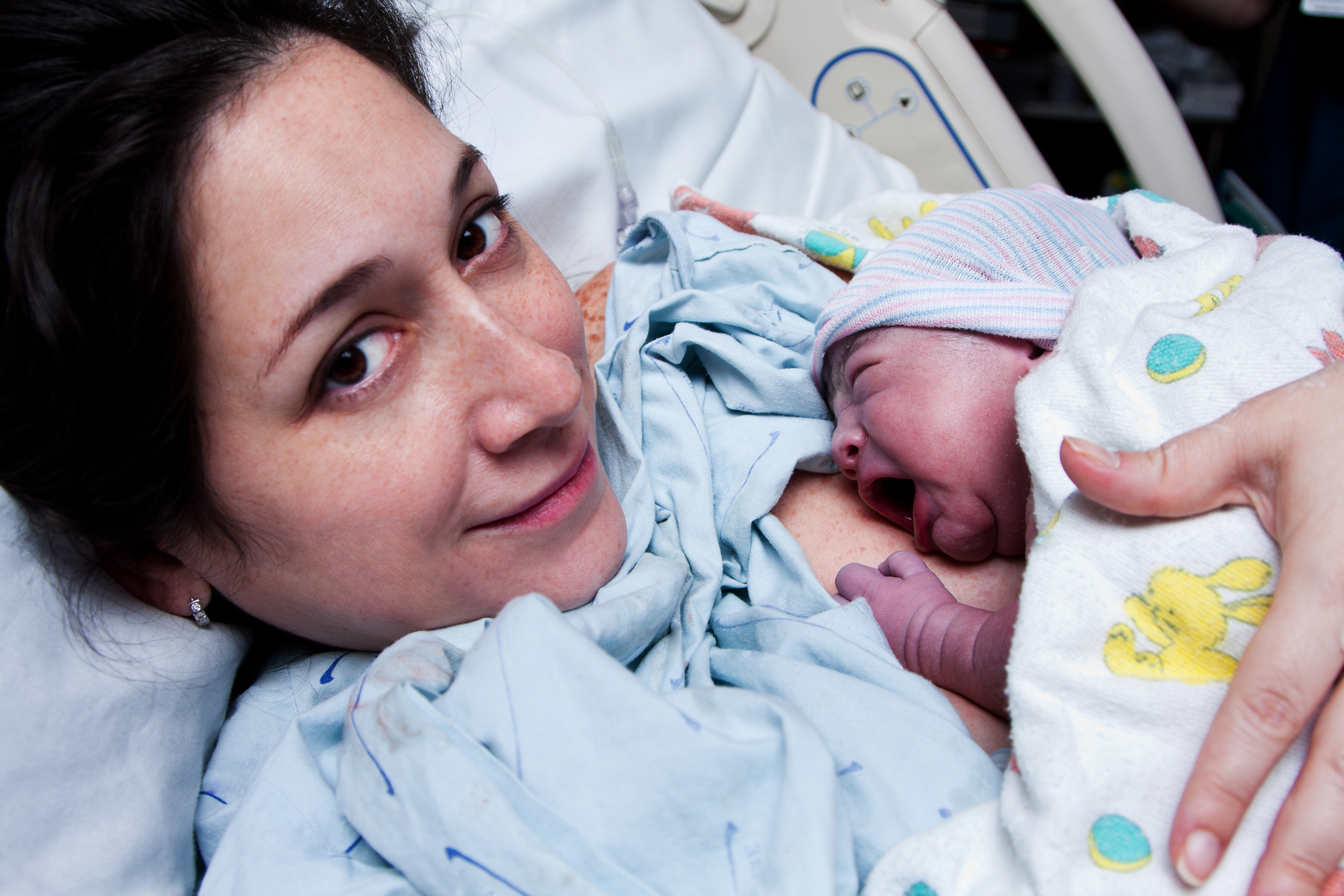Newborn assessment of reflexes
Before your baby is discharged from hospital after the birth (unless they were born at home) a paediatrician will perform a number of tests on your newborn baby including checking many of these newborn reflexes. Sometimes the absence of these reflexes can be a sign of neurological damage.
- Rooting or latching reflex – your baby will turn towards a breast or finger that strokes their cheek, with their mouth gaping open ready to latch on to the breast. This becomes an increasingly voluntary behaviour as your baby’s will preferentially ‘root’ for your breast compared to any random object near their face.
- Suck reflex – your baby will take a mouthful of breast into their mouths, when it touches the roof of her mouth she will begin massaging the breasts with her tongue and sucking to drink milk. Again this becomes an increasingly voluntary behaviour as your baby’s will preferentially suck at the breast or a bottle but not anything in the mouth.
- Moro reflex – loss of support, sudden movement or rapid descent (which feels like falling) will trigger a response where your baby extends her limbs, arches her back and then brings in all her limbs (and usually cries). It recedes by 6 months and scientists have hypothesised that it might have helped our ancestor’s babies to hang on to their mum when being carried around.
- Startle reflex – similar to the Moro reflex but without the flinging out of the arms. Sudden loud noises trigger an automatic and involuntary ‘startle’ which may serve to protect the back of the neck. We startle and blink all our lives but the involuntary startling reflex recedes in babies by 6 months old.
- Babinski’s reflex – when the sole of the foot is stroked from heel to toe your baby’s foot will turn in and her toes will arch up. The reflex will recede by two years and again is thought to be an ancestral protective reflex that prevented infants from falling.
- Stepping reflex – you may see your baby’s paediatrician testing this reflex by holding her upright with her feet on a hard surface. Your baby will then making walking movements even though she is tiny and unable to bear her weight.
- Grasp reflex – your baby will automatically (without thought) curl her fingers around your finger or other object placed on her palm. This charming reflex recedes by 4 months (when babies start to try and reach and grasp [insert link to ‘Development of gross and fine motor skills’] things). At first your baby will be able to support their entire body weight – but don’t try holding them up without being ready to support them as the grasp can sometimes break suddenly.
- Tonic neck reflex – when a paediatrician gently turns your baby’s head to one side when she’s on her back, her arms and legs on the side she is facing will extend while her other arm and leg bends. It starts at around 1 month of age and then recedes at 6 months and may be a precursor to the voluntary grasping behaviour mentioned earlier.
- Dive and swimming reflexes – the dive reflex is also called the ‘Bradycardic response’. When babies are gently brought underwater they hold their breath and open their eyes. The Swedish study of the dive reflex in babies reported that none of them inhale water when they were underwater. It is quite common at baby swimming classes for babies to be brought in the water and even photographs of them as they hold their breath and look at the underwater flash. Related to this is the swimming reflex. This can be seen in babies literally as they are born into birthing balls up to the age of six months where they make swimming movements with their arms and their legs. These aquatic reflexes are fascinating to see, but never assume that a baby can swim as they are unable to lift their faces out of the water. So always support them and bring them up quickly if you take them under water during a expert run baby swimming class.
Note
Whilst it is fine to gently try and provoke some of your baby’s newborn reflexes at home, don’t assume there is a problem if the reflex doesn’t happen. You may not have done it properly. If you are really worried that your baby does not respond as you would expect for their age and stage e.g, no reflex or still exhibiting the reflex when it should have receded, speak to your GP who can assess your baby and refer her to a child development team or paediatrician for further assessment.
DISCLAIMER
This article is for information only and should not be used for the diagnosis or treatment of medical conditions. Essential Parent has used all reasonable care in compiling the information from leading experts and institutions but makes no warranty as to its accuracy. Consult a doctor or other health care professional for diagnosis and treatment of medical conditions. For details
click here.
